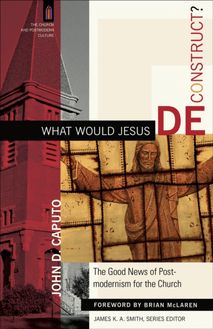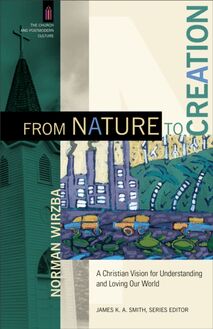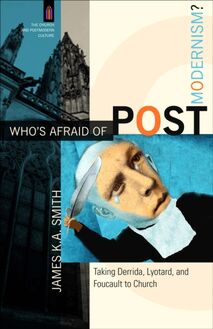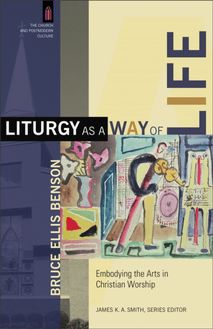-
 Univers
Univers
-
 Ebooks
Ebooks
-
 Livres audio
Livres audio
-
 Presse
Presse
-
 Podcasts
Podcasts
-
 BD
BD
-
 Documents
Documents
-
- Cours
- Révisions
- Ressources pédagogiques
- Sciences de l’éducation
- Manuels scolaires
- Langues
- Travaux de classe
- Annales de BEP
- Etudes supérieures
- Maternelle et primaire
- Fiches de lecture
- Orientation scolaire
- Méthodologie
- Corrigés de devoir
- Annales d’examens et concours
- Annales du bac
- Annales du brevet
- Rapports de stage
La lecture à portée de main
Vous pourrez modifier la taille du texte de cet ouvrage
Découvre YouScribe en t'inscrivant gratuitement
Je m'inscrisEconomy of Desire (The Church and Postmodern Culture) , livre ebook
Découvre YouScribe en t'inscrivant gratuitement
Je m'inscrisEn savoir plus
Vous pourrez modifier la taille du texte de cet ouvrage
En savoir plus

Description
Sujets
Informations
| Publié par | Baker Publishing Group |
| Date de parution | 01 novembre 2012 |
| Nombre de lectures | 0 |
| EAN13 | 9781441240415 |
| Langue | English |
| Poids de l'ouvrage | 2 Mo |
Informations légales : prix de location à la page 0,0624€. Cette information est donnée uniquement à titre indicatif conformément à la législation en vigueur.
Extrait
© 2012 by Daniel M. Bell Jr.
Published by Baker Academic
a division of Baker Publishing Group
P.O. Box 6287, Grand Rapids, MI 49516-6287
www.bakeracademic.com
Ebook edition created 2012
Ebook corrections 06.06.2022
All rights reserved. No part of this publication may be reproduced, stored in a retrieval system, or transmitted in any form or by any means—for example, electronic, photocopy, recording—without the prior written permission of the publisher. The only exception is brief quotations in printed reviews.
ISBN 978-1-4412-4041-5
Library of Congress Cataloging-in-Publication Data is on file at the Library of Congress, Washington, DC.
Scripture quotations are from the New Revised Standard Version of the Bible, copyright © 1989, by the Division of Christian Education of the National Council of the Churches of Christ in the United States of America. Used by permission. All rights reserved.
The Internet addresses, email addresses, and phone numbers in this book are accurate at the time of publication. They are provided as a resource. Baker Publishing Group does not endorse them or vouch for their content or permanence.
“SourceSansProl” font license agreement: http://scripts.sil.org/OFL.
Baker Publishing Group publications use paper produced from sustainable forestry practices and post-consumer waste whenever possible.
Contents
Cover
Series Page
Title Page
Copyright Page
Series Preface 7
Series Editor’s Foreword 9
Preface 13
Introduction: What Has Paris to Do with Jerusalem? 15
1. The Multitude: The Micropolitics of Desire 31
2. Capital Desire: Capitalism as an Economy of Desire 53
3. What Is Wrong with Capitalism? 81
4. Capitalist Theology: The Agony of Capitalist Desire 93
5. Is Another Economy Possible? The Church as an Economy of Desire 123
6. The Economy of Salvation 145
7. Christian Economics 161
8. The Work of Mercy 187
Conclusion: Dishonest Wealth, Friends, and Etern al Homes 215
Notes 219
Index 223
Back Cover
Series Preface
Current discussions in the church—from emergent “postmodern” congregations to mainline “missional” congregations—are increasingly grappling with philosophical and theoretical questions related to postmodernity. In fact, it could be argued that developments in postmodern theory (especially questions of “post-foundationalist” epistemologies) have contributed to the breakdown of former barriers between evangelical, mainline, and Catholic faith communities. Postliberalism—a related “effect” of postmodernism—has engendered a new, confessional ecumenism wherein we find nondenominational evangelical congregations, mainline Protestant churches, and Catholic parishes all wrestling with the challenges of postmodernism and drawing on the culture of postmodernity as an opportunity for rethinking the shape of our churches.
This context presents an exciting opportunity for contemporary philosophy and critical theory to “hit the ground,” so to speak, by allowing high-level work in postmodern theory to serve the church’s practice—including all the kinds of congregations and communions noted above. The goal of this series is to bring together high-profile theorists in continental philosophy and contemporary theology to write for a broad, nonspecialist audience interested in the impact of postmodern theory on the faith and practice of the church. Each book in the series will, from different angles and with different questions, undertake to answer questions such as What does postmodern theory have to say about the shape of the church? How should concrete, in-the-pew and on-the-ground religious practices be impacted by postmodernism? What should the church look like in postmodernity? What has Paris to do with Jerusalem?
The series is ecumenical not only with respect to its ecclesial destinations but also with respect to the facets of continental philosophy and theory that are represented. A wide variety of theoretical commitments will be included, ranging from deconstruction to Radical Orthodoxy, including voices from Badiou to Žižek and the usual suspects in between (Nietzsche, Heidegger, Levinas, Derrida, Foucault, Irigaray, Rorty, and others). Insofar as postmodernism occasions a retrieval of ancient sources, these contemporary sources will be brought into dialogue with Augustine, Irenaeus, Aquinas, and other resources. Drawing on the wisdom of established scholars in the field, the series will provide accessible introductions to postmodern thought with the specific aim of exploring its impact on ecclesial practice. The books are offered, one might say, as French lessons for the church.
Series Editor’s Foreword
J AMES K. A. S MITH
One of the reasons “postmodernism” is misused and misunderstood is that the term is often associated with what we might call a “disruption thesis”: the notion that “postmodernism” names something entirely new and radically different—that postmodernism names a “now” that is somehow discontinuous with all that has gone before. When people hear “postmodernism” bandied about in this way, they look around, see an awful lot that is all too familiar, and dismiss such claims as overwrought, the sorts of things you can convince yourself of if you’ve spent a little too long in Left Bank cafés (or graduate school).
But the best thinking that employs the heuristic term “postmodernism” doesn’t subscribe to such notions of discontinuity. To the contrary: the subtitle of Fredric Jameson’s classic work, Postmodernism , describes it as “The Cultural Logic of Late Capitalism.” On this account, postmodernism is not less modern but more modern—a kind of hyper -modernism, the intensification of forces unleashed by a variety of “revolutions”: Copernican, Industrial; French, American; Digital, Sexual.
This is especially true in fiction: those sometimes described as “postmodern” novelists—Thomas Pynchon, David Foster Wallace, Don DeLillo—paint pictures of worlds dominated by consumption and the unique malaise that characterizes “late capitalism.” Indeed, in Wallace’s Infinite Jest , time itself is organized by corporate sponsors. The calendar no longer belongs to the gods and emperors (Janus, Mars, Julius, Augustus) but rather is owned by corporations—the new divine powers. (Most of the action in Infinite Jest takes place in the “Year of the Depend Adult Undergarment.”) This world is “postmodern” not because it signals some romantic escape from the modern or some jarring break with modernity but because it is one completely saturated and dominated by the forces of modernity. Postmodernity isn’t a world where modernity has failed; it is the world where modernity is all in all. Or as Daniel Bell puts it below, it’s the world where “we’re all capitalists now.”
Most Christian thinking about discipleship and spiritual formation has failed to appreciate this reality. Indeed, much of contemporary North American Christianity not only blithely rolls along with these realities; in many ways, it also encourages and contributes to it with a vast cottage industry of Christianized consumption. By locating the challenges for Christian discipleship in arcane cults or sexual temptation or the “secularizing” forces of the Supreme Court, evangelicalism tends to miss the fact that the great tempter of our age is Walmart. The tempter does not roam about as a horrifying monster, but as an angel of light who spends most of his time at the mall.
These are lessons I first learned, in a significant way, from Dan Bell’s first book, Liberation Theology after the End of History . You might not guess a book of that title would strike such a “practical” nerve, but at the core of Bell’s analysis and argument is a concept that should revolutionize how you think about discipleship and spiritual formation: desire . And it is that core intuition that he translates and extends here in this new book, utilizing the theoretical resources in thinkers such as Gilles Deleuze and Michel Foucault that enable us to see anew just what’s at stake—and what’s going on—in the banality of consumption that surrounds us. Bell helps us to appreciate that there is an economics of desire—that our desire is primed and pointed by “technologies” that habituate us toward certain ends. The question isn’t whether we’ll be subject to an “economy,” but which .
Many Christians have failed to see what’s at stake in contemporary “postmodern” life—dominated as it is by a globalized market and the rhythms of consumption—because we still tend to think that Christian faith is an “intellectual” matter: a matter of what propositions we believe, what doctrines we subscribe to, what Book we adhere to. And conversely, we tend to think of economics as a “neutral” matter of distribution and exchange. Because of these biases, we can too easily miss the fact that Christian faith is at root a matter of what we love —what (and Whom) we desire . If we forget that, or overlook that, we’ll also overlook all the ways that the rituals of “late capitalism” shape and form and aim our desire to worship rival gods. Hence Bell’s argument is not just critical; it is also constructive. He invites us to see the practices of Christian discipleship and the rituals of Christian worship as the lineaments of an alternative economy—a “kingdom come” economics that orders the world otherwise, bearing witness to the strange, upside-down economy of a crucified-now-risen King.
This book excites me not just because it will impact on-the-ground approaches to Christian discipleship but also because it should encourage a paradigm shift in how we stage conversations between Christian faith and economics. As Christian liberal arts education continues to grow and mature, we are seeing more and more mature Christian reflection across the disciplines, including economics. A burgeoning conversation at the intersection of Christian faith and economics—fostered by the Association of Christian Economists—would profit from critical engagement with Bell’s thesis and
-
 Univers
Univers
-
 Ebooks
Ebooks
-
 Livres audio
Livres audio
-
 Presse
Presse
-
 Podcasts
Podcasts
-
 BD
BD
-
 Documents
Documents
-
Jeunesse
-
Littérature
-
Ressources professionnelles
-
Santé et bien-être
-
Savoirs
-
Education
-
Loisirs et hobbies
-
Art, musique et cinéma
-
Actualité et débat de société
-
Jeunesse
-
Littérature
-
Ressources professionnelles
-
Santé et bien-être
-
Savoirs
-
Education
-
Loisirs et hobbies
-
Art, musique et cinéma
-
Actualité et débat de société
-
Actualités
-
Lifestyle
-
Presse jeunesse
-
Presse professionnelle
-
Pratique
-
Presse sportive
-
Presse internationale
-
Culture & Médias
-
Action et Aventures
-
Science-fiction et Fantasy
-
Société
-
Jeunesse
-
Littérature
-
Ressources professionnelles
-
Santé et bien-être
-
Savoirs
-
Education
-
Loisirs et hobbies
-
Art, musique et cinéma
-
Actualité et débat de société
- Cours
- Révisions
- Ressources pédagogiques
- Sciences de l’éducation
- Manuels scolaires
- Langues
- Travaux de classe
- Annales de BEP
- Etudes supérieures
- Maternelle et primaire
- Fiches de lecture
- Orientation scolaire
- Méthodologie
- Corrigés de devoir
- Annales d’examens et concours
- Annales du bac
- Annales du brevet
- Rapports de stage















